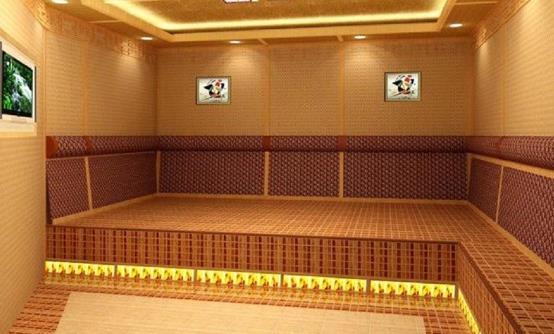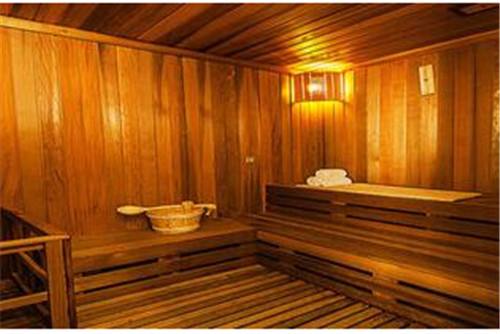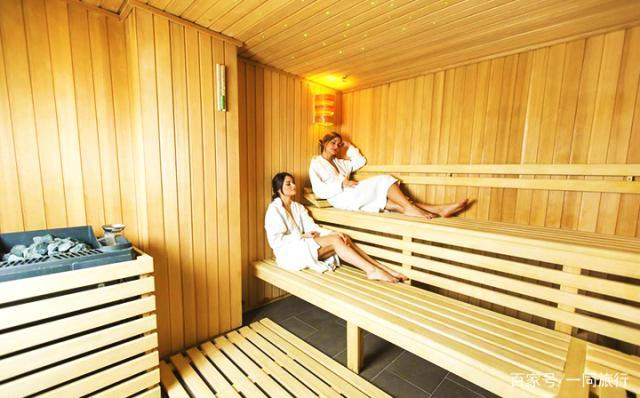In the pursuit of wellness and longevity, the ancient practices of sauna and hot spring bathing have stood the test of time. Both therapies, rooted in various cultures around the world, have been celebrated for their profound health benefits. This article delves into the historical significance, physiological effects, and modern scientific insights that support the use of saunas and hot springs as powerful tools in the quest for optimal health.
## Historical Roots of Sauna and Hot Springs
### Sauna: A Scandinavian Heritage
The sauna, a small room designed to deliver dry or wet heat sessions, has been an integral part of Finnish culture for over two millennia. Traditionally, saunas were constructed from wood and heated by wood-burning stoves, creating an environment where temperatures could reach upwards of 100°C (212°F). The practice of sauna bathing in Finland is so ingrained in daily life that it is often said, "A sauna without a birch whisk is like food without salt."
The Finns use the sauna for socializing, relaxation, and ceremonial purposes. A typical sauna session involves cycles of heating the body, cooling down, and resting. This ritualistic approach not only promotes physical well-being but also fosters a sense of community and mental clarity.
### Hot Springs: Nature’s Therapeutic Pools
Hot springs, geothermal waters heated by the Earth’s crust, have been utilized for their healing properties for centuries. Across different cultures, from the Japanese onsen to the Roman thermae, hot springs have served as communal bathing sites and natural remedies for various ailments.
The Japanese onsen culture, for instance, places great emphasis on the therapeutic aspects of hot springs. The mineral-rich waters, often containing sulfur, calcium, and magnesium, are believed to alleviate muscle pain, improve skin conditions, and enhance overall health. The ritual of bathing in an onsen is not merely about cleanliness but also about rejuvenation and connecting with nature.
## Physiological Effects and Health Benefits
### Detoxification and Improved Circulation
Both sauna and hot spring bathing induce sweating, which is a natural mechanism for detoxification. Sweating helps to eliminate toxins such as heavy metals, environmental chemicals, and metabolic waste products from the body. This process can lead to clearer skin, improved kidney function, and overall enhanced bodily functions.
Moreover, the heat exposure from saunas and hot springs stimulates blood circulation. When the body is subjected to high temperatures, blood vessels dilate, promoting increased blood flow. This enhanced circulation aids in the delivery of oxygen and nutrients to tissues, thereby accelerating the healing process and reducing muscle soreness.
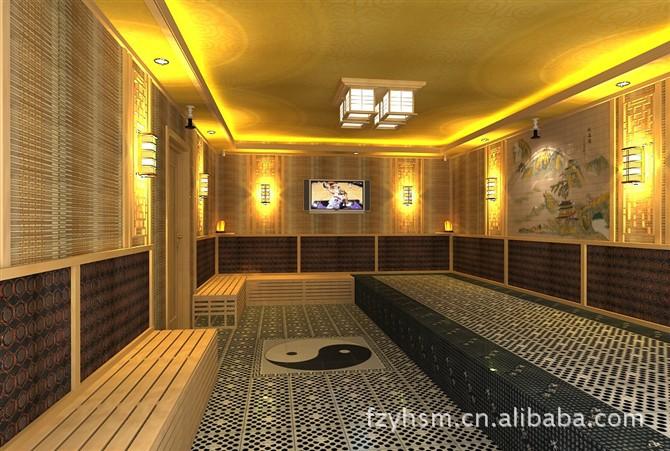
### Cardiovascular Health
Regular sauna use has been linked to improved cardiovascular health. Studies have shown that sauna bathing can lower blood pressure, reduce arterial stiffness, and improve heart function. The heat-induced increase in heart rate mimics the effects of moderate physical exercise, offering cardiovascular benefits without the strain on joints and muscles.
Similarly, hot spring bathing has been associated with lower blood pressure and improved cardiac function. The minerals found in hot springs, particularly magnesium and calcium, play a crucial role in maintaining heart health. These minerals can help regulate heart rhythm, reduce hypertension, and promote overall cardiovascular wellness.
### Stress Reduction and Mental Well-being
The psychological benefits of sauna and hot spring bathing are equally significant. The serene environment and the ritualistic nature of these practices provide a perfect escape from the stresses of daily life. The heat exposure leads to the release of endorphins, the body’s natural painkillers and mood enhancers, which can induce feelings of relaxation and euphoria.
In addition, the practice of alternating between hot and cold environments, such as dipping into a cold plunge pool after a sauna session, can invigorate the mind and body. This contrast therapy is believed to enhance mental clarity, improve focus, and reduce symptoms of anxiety and depression.
### Immune System Boost
Sauna and hot spring bathing can also bolster the immune system. The elevated body temperature experienced during a sauna session mimics a fever, which is the body’s natural defense mechanism against infections. This temporary increase in body temperature can enhance the production of white blood cells, thereby boosting the immune response.
Similarly, the minerals in hot springs, such as sulfur, have antimicrobial properties that can help fight off infections and support the immune system. Regular exposure to these therapeutic waters can contribute to a stronger, more resilient immune system.

## Modern Scientific Insights
Recent scientific research has provided further validation of the health benefits of sauna and hot spring bathing. A study published in the Journal of the American Medical Association (JAMA) found that frequent sauna use was associated with a reduced risk of sudden cardiac death, coronary artery disease, and all-cause mortality. The study highlighted that individuals who used a sauna four to seven times a week had a 50% lower risk of cardiovascular-related death compared to those who used it once a week.
Another study conducted in Japan on hot spring bathing revealed significant improvements in pain relief, sleep quality, and overall quality of life among participants with chronic pain conditions. The mineral composition of the hot spring water, combined with the relaxing environment, contributed to these positive outcomes.
## Practical Tips for Sauna and Hot Spring Use
### Sauna Bathing Tips
1. **Stay Hydrated**: Drink plenty of water before and after your sauna session to prevent dehydration.
2. **Gradual Exposure**: Start with shorter sessions and gradually increase the duration as your body adapts to the heat.
3. **Cool Down**: Incorporate cool-down periods between heating sessions to stabilize body temperature and avoid overheating.
4. **Listen to Your Body**: Pay attention to how your body feels and exit the sauna if you experience dizziness or discomfort.
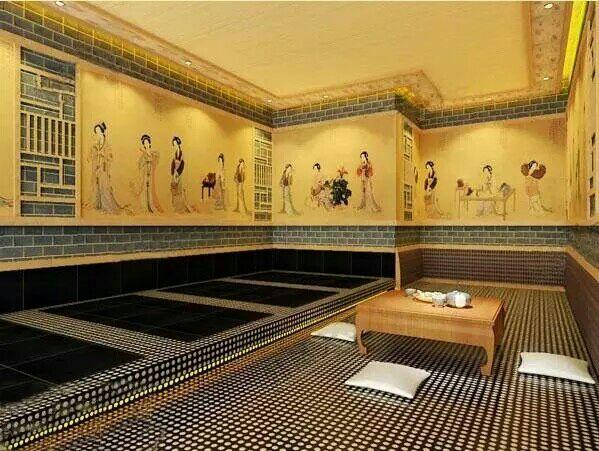
### Hot Spring Bathing Tips
1. **Check the Mineral Content**: Be aware of the mineral composition of the hot spring water, as some minerals may not be suitable for individuals with certain health conditions.
2. **Moderate Your Time**: Limit your time in hot springs to avoid overexposure to heat, which can lead to dehydration or heat exhaustion.
3. **Respect Local Customs**: Follow local etiquette and guidelines when visiting public hot springs, such as showering before entering the pool.
4. **Consult Your Doctor**: If you have any health concerns, consult your healthcare provider before using hot springs, especially if you are pregnant, have cardiovascular issues, or other medical conditions.
## Conclusion
The timeless practices of sauna and hot spring bathing offer a myriad of health benefits, from improved cardiovascular health and enhanced detoxification to reduced stress and strengthened immunity. These traditional therapies, backed by modern scientific research, provide a holistic approach to wellness that nurtures both the body and mind. Whether you immerse yourself in the steamy embrace of a sauna or the mineral-rich waters of a hot spring, these ancient rituals can be powerful allies in your journey towards optimal health and well-being.
转载请注明:成都会所桑拿-四川成都休闲桑拿推荐论坛! » 武汉休闲 » Sauna and Hot Springs: Unveiling the Health Benefits of Traditional Thermal Therapies
版权声明
本文仅代表作者观点,不代表成都休闲网立场。
本文系作者授权发表,未经许可,不得转载。




